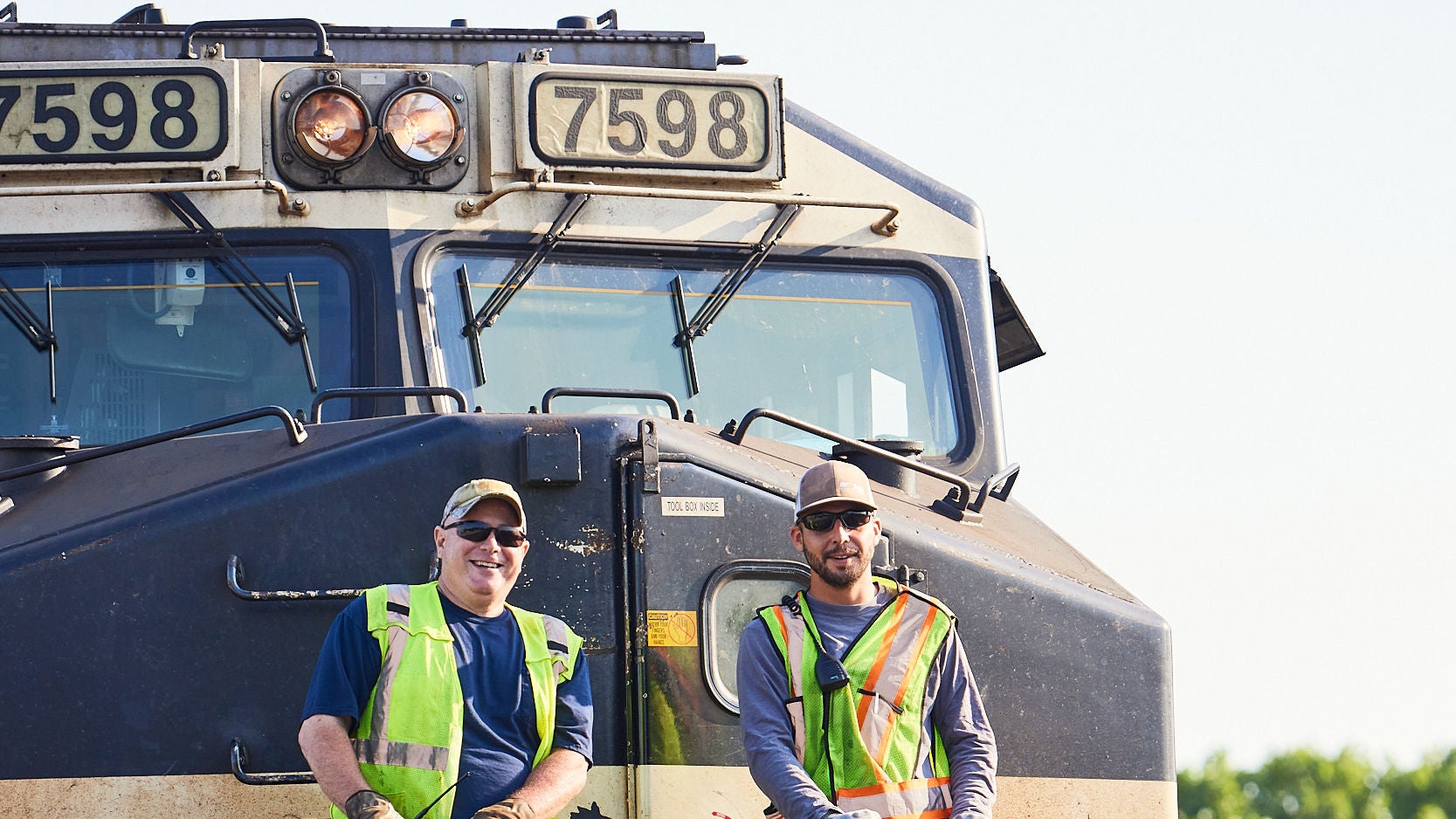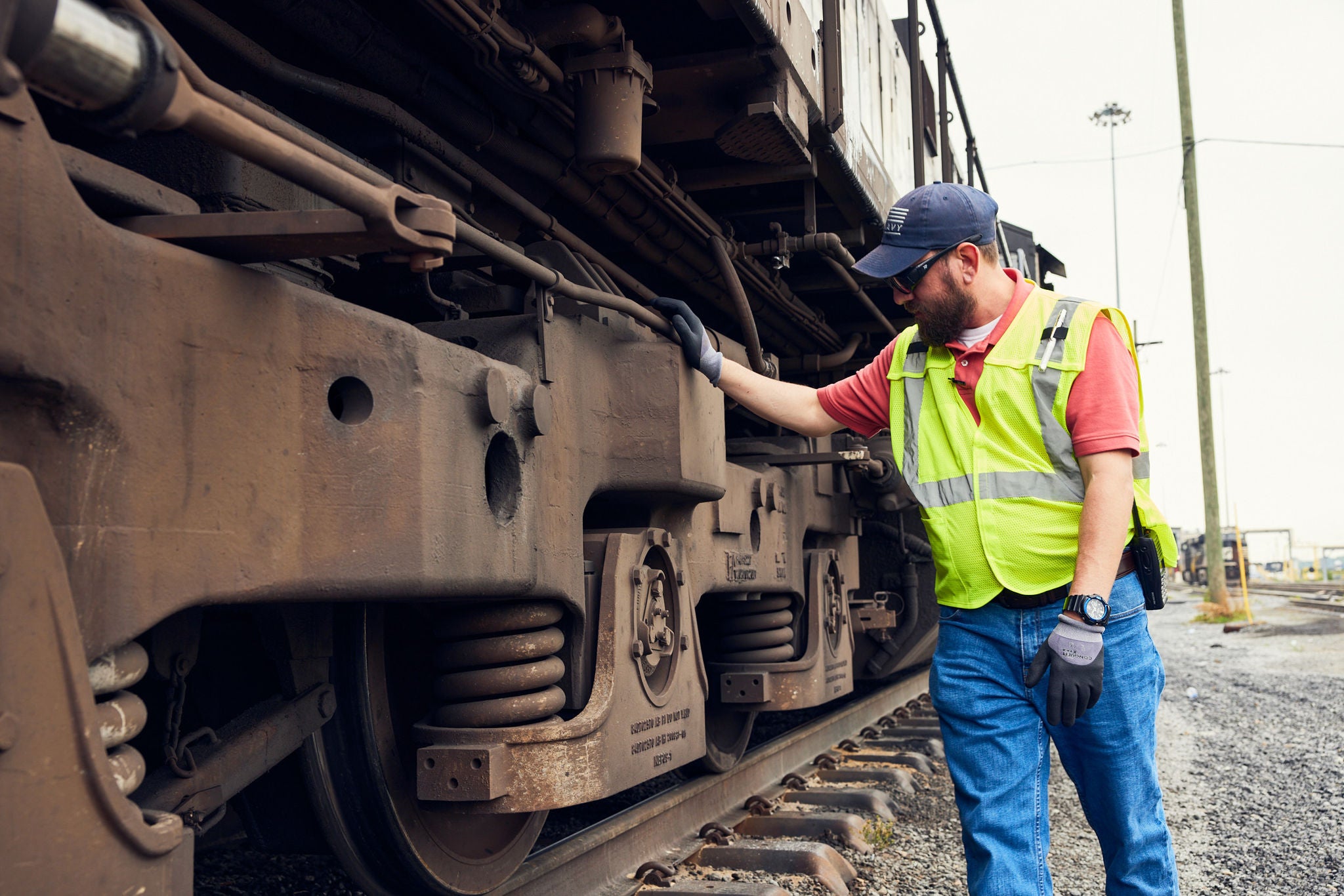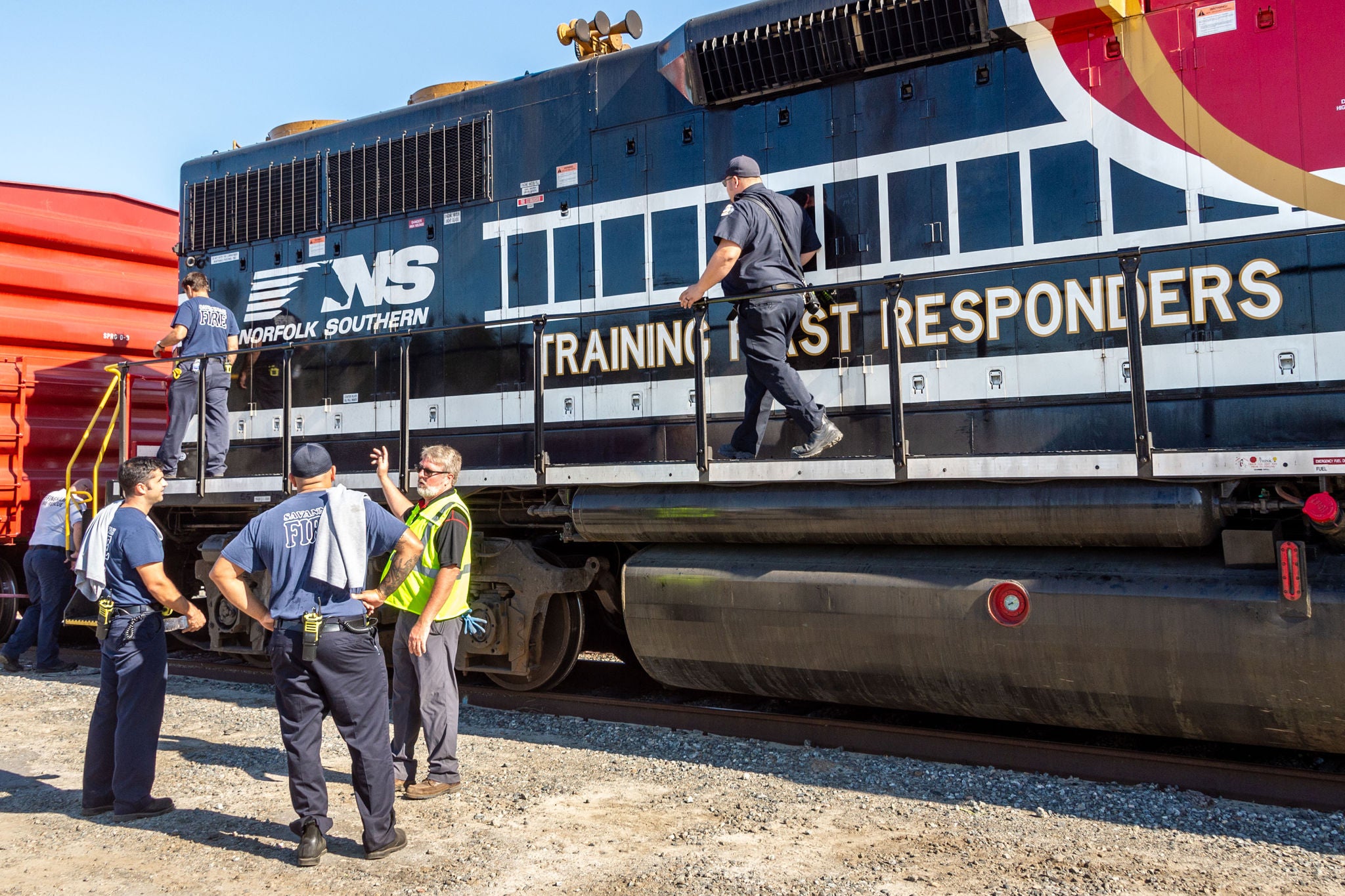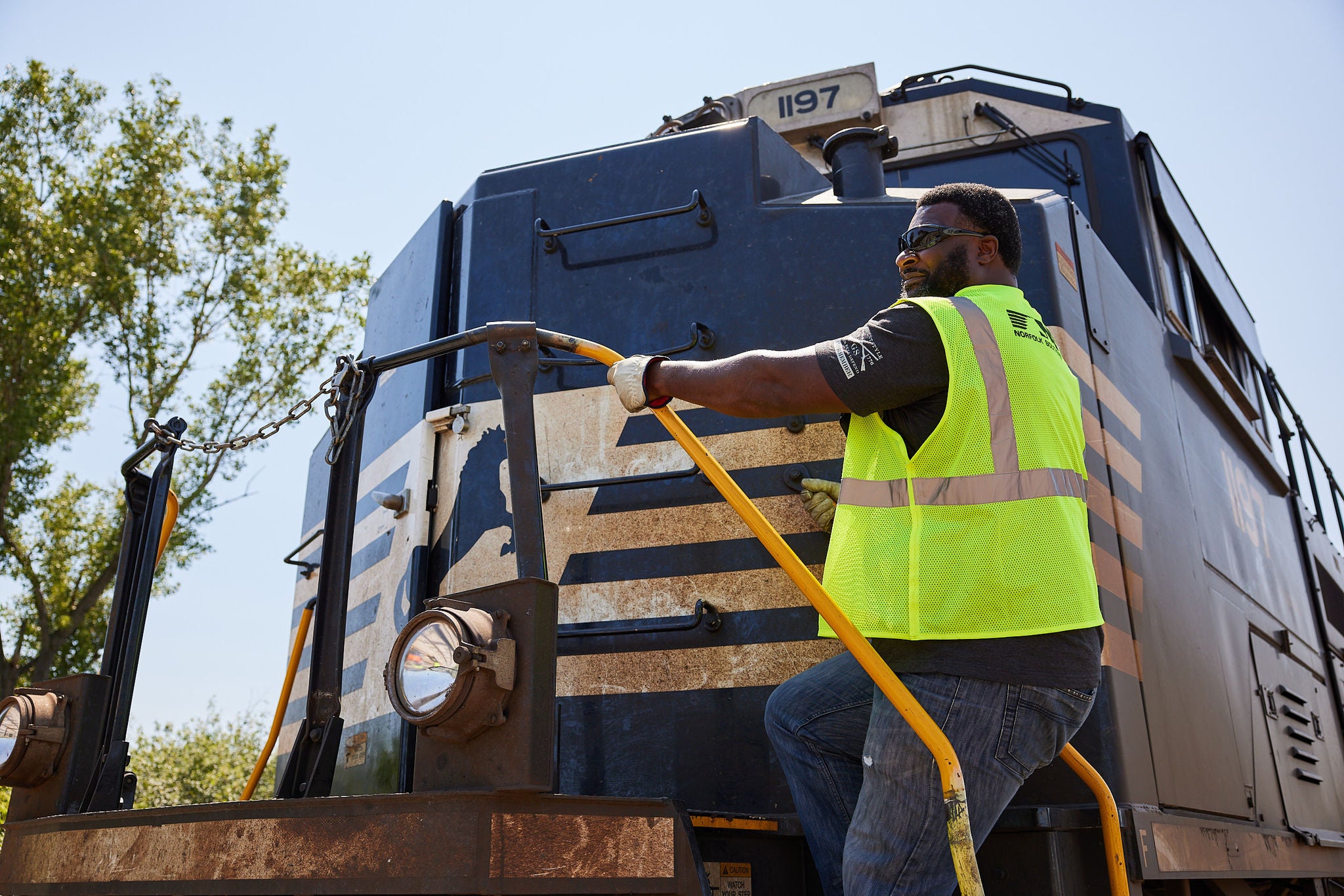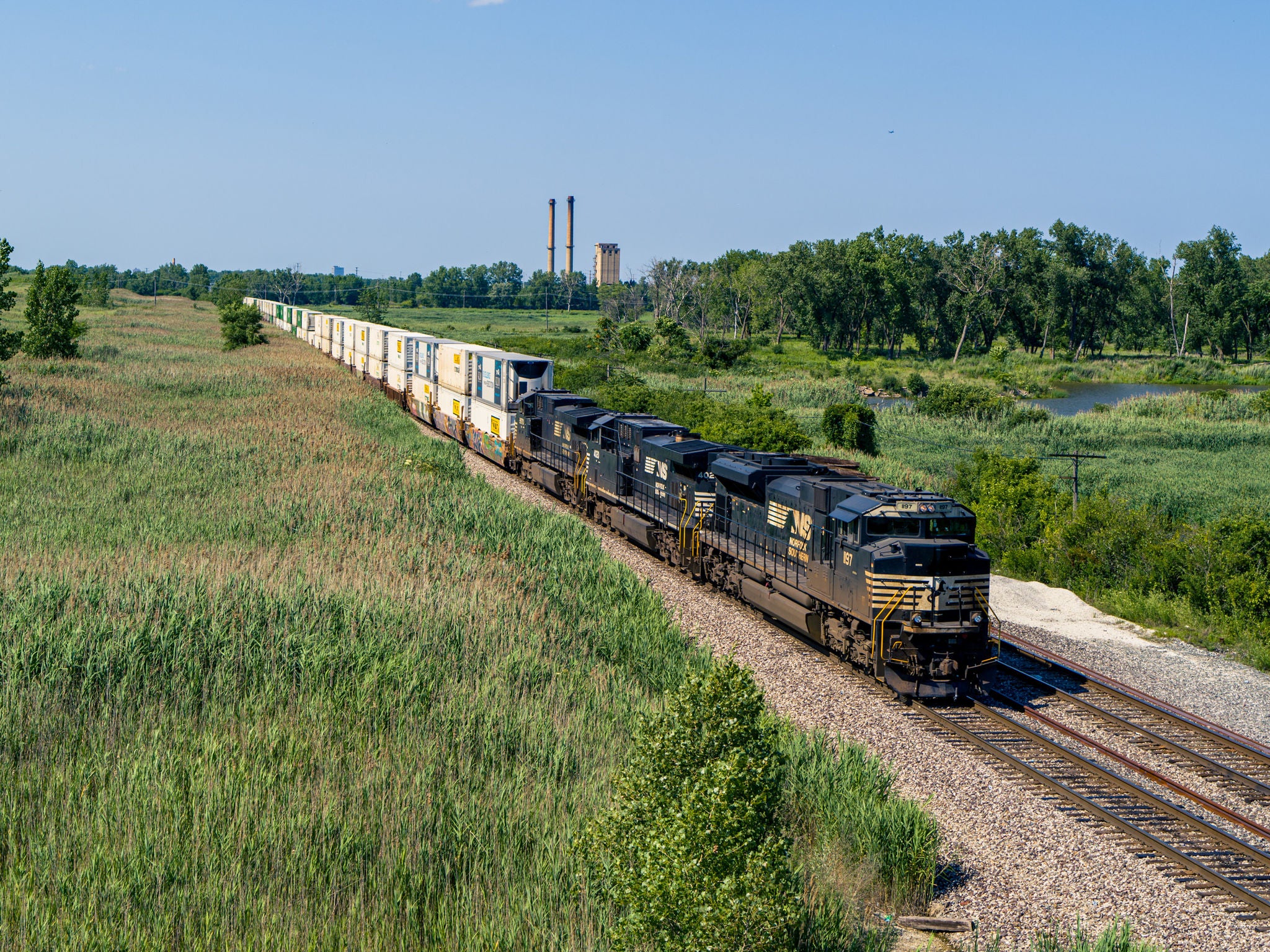Norfolk Southern, like all Class 1 railroads, is required by federal law to carry a variety of materials. Some of these are hazardous materials, needed by businesses to manufacture goods or products used in water treatment, for example. Rail is the safest way to move freight, and particularly hazardous materials. Data from the Federal Railroad Association (FRA) shows that moving hazardous materials by rail is 50 times safer than by truck. The rail cars that carry these materials are built, maintained, and inspected to standards set by the FRA. These standards are built on many years of research and continued refinement to railcar designs with safety first and foremost in mind. In fact, tank car standards are getting more and more stringent every year.
Incidents involving hazardous material spills are extremely rare, but NS is prepared for them. We have a team of regional hazardous material professionals, backed up by specialized contractors that respond immediately to any incident. In addition to trainings we conduct with first responders across our network, we will soon be rolling out a new app that will enable local first responders to immediately know what materials are inside any rail car to help them know how to best respond to an incident.

